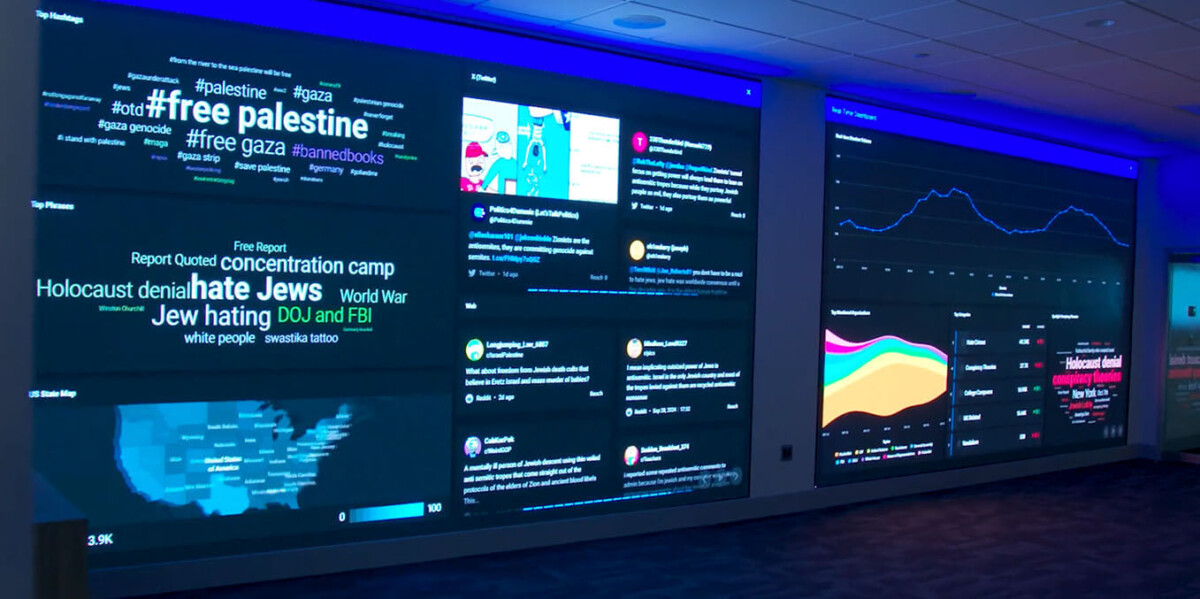
The Scope and Impact of Antisemitism
of religious hate crimes in 2023 were Jewish, despite Jews making up only 2.4% of the U.S. population. (FBI)
Americans think Jewish people threaten the unity of American society (BSA Survey)
of young Jewish people aged 18-29 have seen or were targets of online antisemitism in the preceding 12 months. (AJC)
Where Antisemitism Manifests
hate crimes in the United States in the four years leading up to 2023 involved vandalism of property. (FBI)
about antisemitism on college campuses has been one of the fastest-growing topics in the last five years. (BSA Command Center)
Antisemitic Tropes and Conspiracy Theories
and “cosmopolitan elite,” along with similar terms, may function as antisemitic dog whistles and personalized slurs in certain contexts. (AJC)
believe Jews have too much media influence compared to 2023. (BSA Survey)
using the phrase “Jews control ___” have increased by 300% since 2022. (BSA Command Center)
The Rise of Antisemitism Since October 7
Judaism, and Israel skyrocketed after the October 7 attacks, with a 678% increase in mentions. (BSA Command Center)
false bomb threats and swatting incidents against Jewish individuals and institutions were reported in the United States in the year following Oct. 7. (Secure Community Network)
denial increased on social media by 30% in 2024, with almost 1 million posts. (BSA Command Center)
Social Responses to Antisemitism
don’t consider antisemitism a major problem. (BSA Survey)
are very likely to speak up on behalf of a Jewish person experiencing hostility or prejudice. (BSA Survey)
are 2-3 times more likely than the general population to support political violence to achieve political goals. (ADL)
to the Newport Hebrew Congregation, George Washington wrote the U.S. gives “to bigotry no sanction, to persecution no assistance.” (Library of Congress)
enjoy sharing Jewish culture and holidays with their non-Jewish friends, helping to foster understanding and connection. (Pew Research)
who have seen FCAS ads are 46% more likely to stand up to Jewish hate. (BSA Research)
Donate
Request A Pin